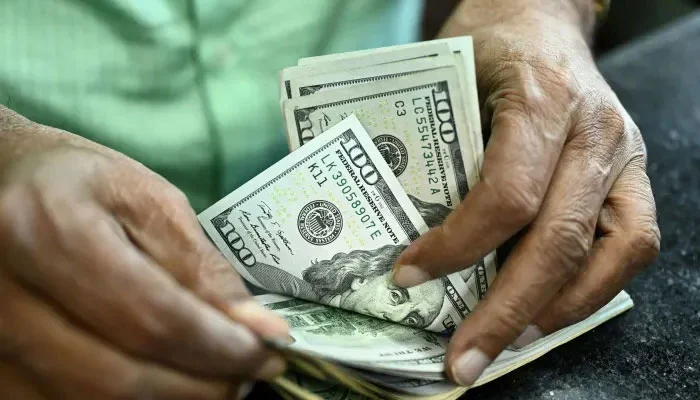Pakistan has secured commitments for foreign loans totaling $3.2 billion from international creditors, which includes a $1.2 billion Saudi Oil Facility (SOF) for the next year.
This funding breakdown consists of $1.2 billion from Saudi Arabia for the oil facility, $1 billion in commercial loans from Dubai Islamic Bank (DIB), $600 million from Standard Chartered Bank (SCB), and approximately $430 million from the Islamic Development Bank’s ITFC facility.
According to the borrowing plan for the financial year 2024-25 presented by the Ministry of Finance, Pakistan aims to raise a total of $19.274 billion during the current fiscal year. Notably, the $19.2 billion in external inflows does not include the borrowing secured from the IMF under the Extended Fund Facility (EFF).
Pakistan is projecting to obtain $4.56 billion from multilateral creditors, including the World Bank, Asian Development Bank, Islamic Development Bank, and Asian Infrastructure Investment Bank (AIIB), along with $9.4 billion in bilateral funding, $3.779 billion from commercial banks, $1 billion through international bonds, and $0.5 billion from the Naya Pakistan Certificate.
Sources indicate that the federal secretary of finance recently visited Saudi Arabia, although no agreements have been signed yet. Discussions may have included the term sheet for finalizing the Saudi Oil Facility (SOF) and the Reko Diq deal. The finance ministry has not responded to inquiries about the visit.
The borrowing plan for FY25 emphasizes the government’s commitment to fulfilling all actions associated with multilateral program loans that are in the pipeline and expected to be disbursed throughout the year. Key multilateral loans for FY25 include: (i) a $400 million Climate and Disaster Resilience Enhancement Program (Sub-program I); (ii) a $100 million Women Inclusive Finance Program (Sub-program II); and (iii) a $300 million Domestic Resource Mobilization Program (Sub-program II).
Additionally, the government aims to roll over bilateral deposits from China, totaling $4 billion, and from Saudi Arabia, amounting to $5 billion. For foreign commercial loans, plans include refinancing around $3.878 billion in existing loans, as well as raising an additional $1.2 billion through new commercial debt.
To enhance funding, the government intends to raise approximately $1 billion through the issuance of Panda Bonds in the Chinese capital markets and Green Bonds in international capital markets, with no Eurobond or International Sukuk maturities expected during FY25.
As Pakistan faces severe consequences from climate change, including shifting weather patterns and catastrophic floods, the government recognizes the urgent need for sustainable finance. Consequently, efforts are underway to establish a sustainable finance framework aimed at promoting green financing, mitigating the impacts of climate change, adhering to Sustainable Development Goals (SDGs), and fulfilling targets set through Nationally Determined Contributions.
The finance ministry is collaborating with joint sustainability coordinators to explore the possibility of issuing inaugural green, social, or sustainability bonds during the fourth quarter of FY25. For the Panda Bond initiative, Islamabad plans its first issuance in the Chinese capital markets, with the China Development Bank, China International Capital Corporation, Habib Bank Limited, and Ci+ Bank acting as joint financial advisors, targeting an issuance of approximately $300 million during FY25. The process for engaging third-party services, including domestic and international legal counsels and rating agencies, is already in progress.




